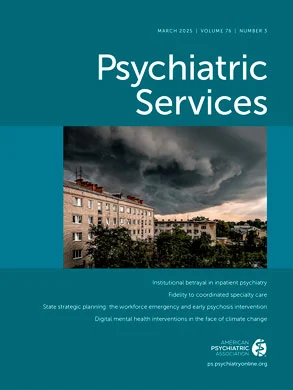Researchers face a difficult challenge in accounting for the patterns in causes of mortality and reduced life expectancy that distinguish the population of persons with serious mental illness from the general population. Studies such as the work of Dembling and associates reported in this month's issue have made a good start by carefully describing these patterns. However, to explain the significant amount of years of life lost by this population, researchers must more closely examine the many risk factors that affect mortality.
Lack of emotional support and social networks can increase the risk of death from medical conditions such as myocardial infarction as much as eightfold, even after adjusting for severity of coronary disease, comorbid conditions, smoking, or hypertension. Lower socioeconomic class has been associated with increased mortality rate independent of other risk factors. The World Health Organization's study of the global burden of disease has estimated that smokers lose, on average, 7.4 years of life. Additional data suggest that smoking also increases the risk of death from various injuries, including suicide and homicide. The literature on substance use disorders suggests a link between substance abuse and increased medical morbidity and early death from accidents, suicide, and homicide. Only with a clearer understanding of the relative importance of the various risk factors can programming toward reducing mortality among people with serious mental illness be implemented.
To be most effective, future investigations of these factors will require the collaboration of the many agencies that contribute to the care of this vulnerable population. Because of the nature of service systems, individuals receive services from multiple agencies or migrate from one service system to another during their lifetime. For example, for the study reported in this issue, Dembling and associates used the Massachusetts Department of Mental Health database to identify a population of persons with serious mental illness, but at the time of their death most of these individuals had not been in the care of the department for many years.
Public health departments, the agencies that administer Medicaid and Medicare, and other health care groups collect data that are vital to understanding risk factors, medical conditions, and treatment history. From the standpoint of public policy, it is essential to conduct further research with databases from across mental health systems and different states to explain the differences in life expectancy and causes of death.

